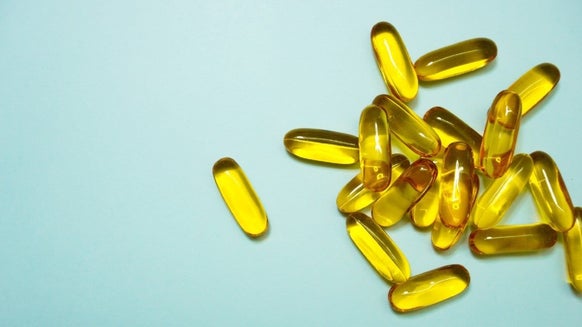
You may have had a glass of milk before bed as a kid to build strong bones, but did you ever think that this night-time drink may also be useful for better gym gains? Here we take a look at the evidence surrounding protein shakes before bed, and provide some practical guidelines to avoid any potential pitfalls.
Impact of protein before bed on weight loss
Protein is the main nutrient that stimulates the growth of new muscle tissue and also helps to protect your hard-earned muscle mass during weight loss.(10) However, the power of protein doesn’t stop there, as research shows that protein intake before you hit the hay can boost metabolism and help keep hunger pangs at bay. This is important as, to lose weight, we must burn more calories than we consume throughout the day.
Fascinatingly, protein intake before you go to bed has been shown to increase your metabolism the following day, meaning you’re burning around 100 extra calories, simply through what you have before bed the night before.(8, 9, 11)
Furthermore, the body uses far more energy to digest, absorb, and metabolise protein compared to when you eat carbohydrates, meaning that a night-time protein snack can also increase metabolism throughout the night.(1) Finally, protein intake also keeps us feeling full and may help to reduce those late-night high calorie cravings that can be so damaging to your weight loss success.(2)
So, this all means that protein prior to sleep can increase energy expenditure throughout the night and throughout the next day, whilst also stopping us from picking up those late-night snacks that can have a huge impact on our weight loss goals.
It’s still pretty unclear whether a particular form of protein is better than another for speeding up metabolism, but most studies currently conclude that more may be better, given that 48g appears to increase resting energy expenditure to a greater extent when compared with 24g (i.e. two servings versus one).(8)
Effects on muscle growth
While many people train in the evening and consume protein in the post-workout period, how many of us consider protein shakes before bed? This is especially important given that the stimulation of muscle growth is typically low when you sleep and so you may be at risk of muscle protein breakdown throughout the night. (3, 15)
Luckily, researchers have shown that your gut is still able to function normally throughout the night whilst you sleep, which means you can still properly digest and absorb any protein consumed before bed.(5) This gives you a clear opportunity to stimulate muscle growth as you sleep by slurping down protein shakes before bed.
So how much do you need? Researchers have shown that 40g casein protein before bed stimulates muscle protein synthesis by around 20%.(12)
Doing so provides conditions that are favourable to muscle growth as it takes our muscle from a state of negative protein balance to a state of positive protein balance. these researchers have also shown that protein shakes before bed also lead to changes in both muscle size and strength when combined with regular training. (14)
For instance, those who regularly had protein shakes before bed increased their 1 rep max scores (across a range of 6 different exercises) by 150kg, which is 30kg more than those who consumed no protein before sleep. These adaptations also extended to a 10% increase in quadriceps size and 12% in the number of ‘fast twitch’ type II muscle fibres. These fibres can generate high amounts of force and are relied upon when lifting weights
Effects of protein before bed on sleep
Sleep is generally recognised as an important recovery tool and a constant lack of sleep may result in changes to performance, immunity and protein synthesis.(6)
Although much more research in this area is required, we currently know that consuming a high-protein diet may improve overall sleep quality.(7) Furthermore, its intake prior to sleep may increase the availability of the amino acid L-tryptophan and, when consumed with carbohydrates, tryptophan uptake into the brain is increased and may improve the time taken to fall asleep as well as overall sleep quality.(6)
Best protein to consume before bed
The majority of available research to date supports the use of casein protein, although the differences between casein, whey, and soy are very small. The theory behind the use of casein protein is that it provides a more sustained release of amino acids and so maintains amino acid availability throughout the night.(4)
Also, casein protein appears to have a clearer effect on next-day energy expenditure and seems to have a more satiating effect, leaving us feeling fuller after drinking.(1)
Despite this, more research is needed to provide clear guidelines on the best form of protein to take before bed, although we should keep in mind that the majority of studies listed above commonly use doses between 40-50g which may be a more important consideration than the specific type of protein used.
Protein shake recipe ideas for night
Given the role of protein in stimulating the synthesis of new muscle and next-day metabolism, and tryptophan in the production of melatonin and improved sleep quality, it seems logical that our pre-sleep shake should contain both protein and tryptophan.(13)
Dairy products such as milk and yoghurt provide a mix of both whey and casein whilst also containing tryptophan, which is also contained in pumpkin and sunflower seeds. This pre-sleep shake recipe combines all of the key compounds to cover all bases.
- 150g fat-free strained Greek yoghurt
- 20g protein powder
- 2 tbsp. pumpkin seeds
- 1 cup mixed berries
- Milk or water for desired thickness
Take home message
Having protein shakes before bed provides a key opportunity to stimulate muscle growth, influence daily energy metabolism, and improve overall sleep quality. Furthermore, when performed regularly, pre-sleep protein promotes gains in both muscle mass and strength. Whilst the optimal type of protein required before bed remains unclear, a dose of between 40-50g may be necessary to achieve the benefits outlined in this article.

Mark is a current PhD researcher at the Research Institute for Sport & Exercise Science (Liverpool John Moores University) where his research focuses on the role of nutrition in skeletal muscle adaptation to training.
Mark also holds a Bachelor’s of Science in Sport & Exercise Science and a Master’s in Sport Nutrition and has published work in a range of scientific journals, professional magazines and has presented at both national and international conferences.
Alongside his research profile, Mark also practices as a performance nutritionist within professional football.Find out more about Mark’s experience here.
- Acheson KJ, Blondel-lubrano A, Oguey-araymon S, Beaumont M, Emady-azar S, Nielsen-moennoz C, Bovetto L, Ammon-zufferey C, Monnard I. Protein choices targeting thermogenesis and metabolism. Am J Clin Nutr 93: 525–534, 2011.
- Anderson GH, Moore SE. Dietary Proteins in the Regulation of Food Intake and Body Weight in Humans. J Nutr 134: 974–979, 2004.
- Beelen M, Tieland M, Gijsen AP, Vandereyt H, Kies AK, Kuipers H, Saris WHM, Loon LJC Van. Coingestion of Carbohydrate and Protein Hydrolysate Stimulates Muscle Protein Synthesis during Exercise in Young Men, with No Further Increase during Subsequent Overnight Recovery. J Nutr 138: 2198–2204, 2008.
- Boirie Y, Dangin M, Gachon P, Vasson M-P, Maubois J-L, Beaufrere B. Slow and fast dietary proteins differently modulate postprandial protein accretion. Proc Natl Acad Sci 94: 14930–14935, 1997.
- Groen BBL, Res PT, Pennings B, Hertle E, Senden JMG, Saris WHM, Loon LJC Van. Intragastric protein administration stimulates overnight muscle protein synthesis in elderly men. Am J Physiol Endocrinol Metab 302: 52–60, 2019.
- Halson SL. Sleep in Elite Athletes and Nutritional Interventions to Enhance Sleep. Sport Med 44: 13–23, 2014.
- Lindseth G, Lindseth P, Thompson M, Forks G. Nutritional Effects on Sleep. West J Nurs Res 35: 497–513, 2017.
- Madzima TA, Melanson JT, Black JR, Nepocatych S. Pre-Sleep Consumption of Casein and Whey Protein: Effects on Morning Metabolism and Resistance Exercise Performance in Active Women. Nutrients (2018). doi: 10.3390/nu10091273.
- Madzima TA, Panton LB, Fretti SK, Kinsey AW, Ormsbee MJ. Night-time consumption of protein or carbohydrate results in increased morning resting energy expenditure in active college-aged men. Br J Nutr 111: 71–77, 2014.
- Mettler S, Mitchell N, Tipton KD. Increased Protein Intake Reduces Lean Body Mass Loss during Weight Loss in Athletes. Med Sci Sport Exerc : 326–337, 2010.
- Ormsbee MJ, Gorman KA, Miller EA, Baur DA, Eckel LA, Contreras RJ, Panton LB, Spicer MT. Nighttime feeding likely alters morning metabolism but not exercise performance in female athletes. Appl Physiol Nutr Metab 727: 719–727, 2016.
- Res PT, Groen B, Pennings B, Beelen M, Wallis GA, Gijsen AP, Senden JMG, Loon LUCJCVAN. Protein Ingestion before Sleep Improves Postexercise Overnight Recovery. Med Sci Sport Exerc 44: 1560–1569, 2012.
- Silber BY, Schmitt JAJ. Effects of tryptophan loading on human cognition, mood, and sleep. Neurosci Biobehav Rev 34: 387–407, 2010.
- Snijders T, Res PT, Smeets JSJ, Vliet S Van, Kranenburg J Van, Maase K, Kies AK, Verdijk LB, Loon LJC Van. Protein Ingestion before Sleep Increases Muscle Mass and Strength Gains during Prolonged Resistance-Type Exercise Training in Healthy Young Men. J Nutr : 1178–1184, 2015.
- Trommelen J, Loon LJC Van. Pre-Sleep Protein Ingestion to Improve the Skeletal Muscle Adaptive Response to Exercise Training. Nutrients 28: E763, 2016.








